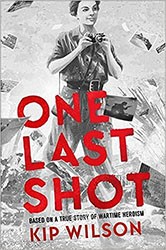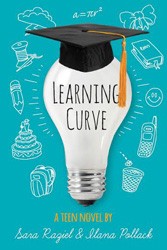This delightful book is full of surprises, starting with the opening page which is written in blank verse. Each chapter is a separate poetic vignette, connecting to each of the others and telling the story of a family in a unique and memorable fashion.
Written from the point of view of an eleven year old girl who is number four in a Jewish family of twelve, it is aptly titled Looking for Me. It takes place during the Depression and is an exploration of this young girl’s identity. In a family of six boys and six girls, is she just the fourth child or is she something more? She sees herself as “the good little mother” as she is constantly meeting the needs of her younger siblings. Additionally, she feels she is one of her “Dad’s work slaves” as she is required to clean and serve in his diner until two in the morning. She is shocked when the teacher tells her she is smart and should go to college. However, in a family that is always short of money, how will this ever come to pass? What does ensue is the beautiful story recounted here. But, Looking for Me is about much more than Edith, its main character. It also gives us glimpses into family dynamics that are informed by the time and place. How can Edith ever forgive her Bubbe, who left her mother in Europe when she was an infant and went off to the United States? True, Bubbe brought her child over many years later, but how could any mother abandon a child in this way? By reading the interview between Edith and her Bubbe we begin to understand.
The most poignant part of the book is the death of a younger brother, Melvin. We feel the sadness that affects Edith and her mother. Late at night she sees her mother ironing. “Drops of tears fall on the shirt…” “I wish I knew the right words to say to help her iron her sadness away,” says Edith.
At the end of the book, Edith graduates from grade school with a student achievement award. However, this too is a source of pathos. Her father works, her older siblings do too, and her mother is grieving. No one will be present to celebrate. What happens in the final scene makes this book worth reading.
The book contains a glossary of Yiddish and Hebrew words, an author’s note and pictures of the family on whom the story is based. Highly recommended for ages 11 – 15.





